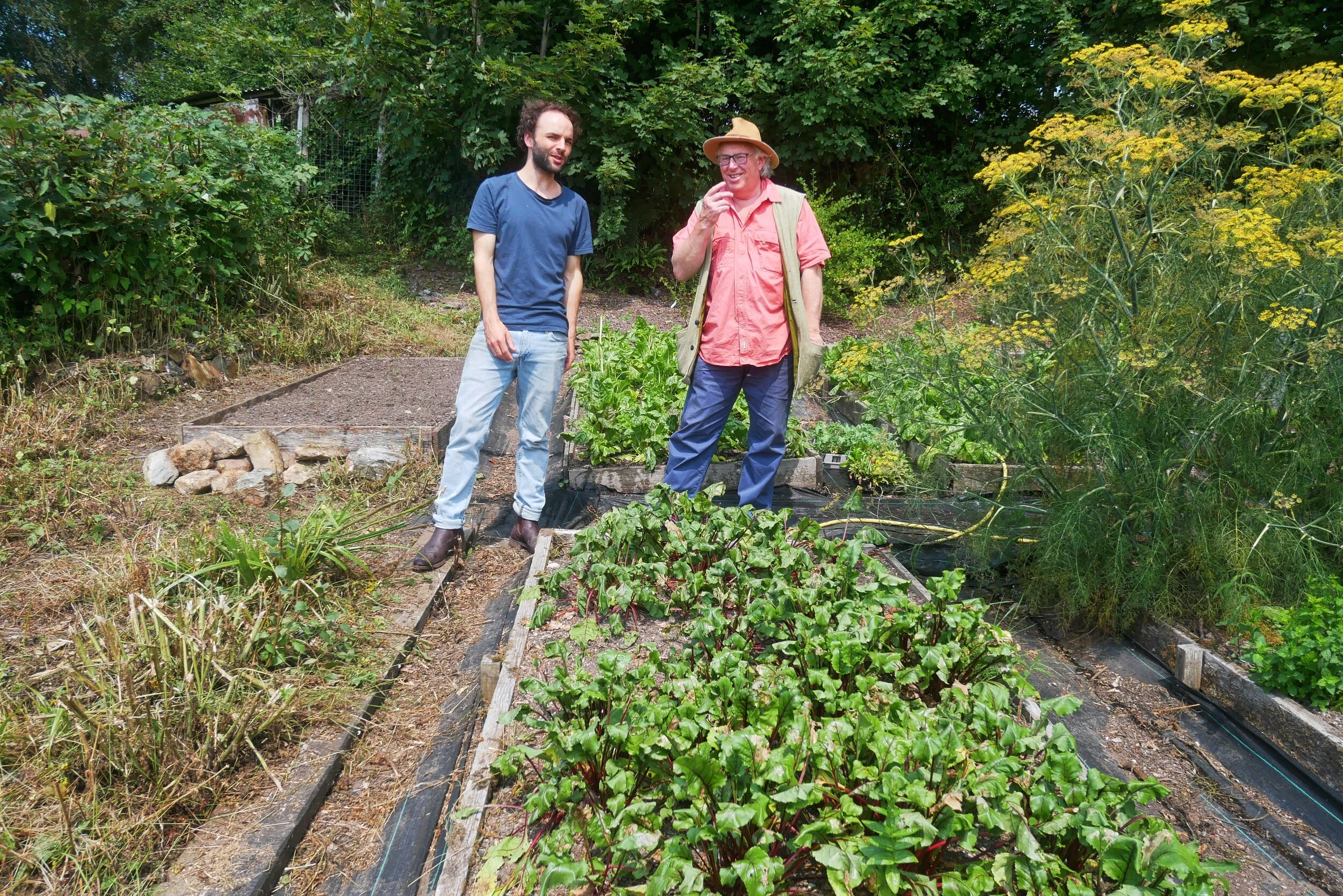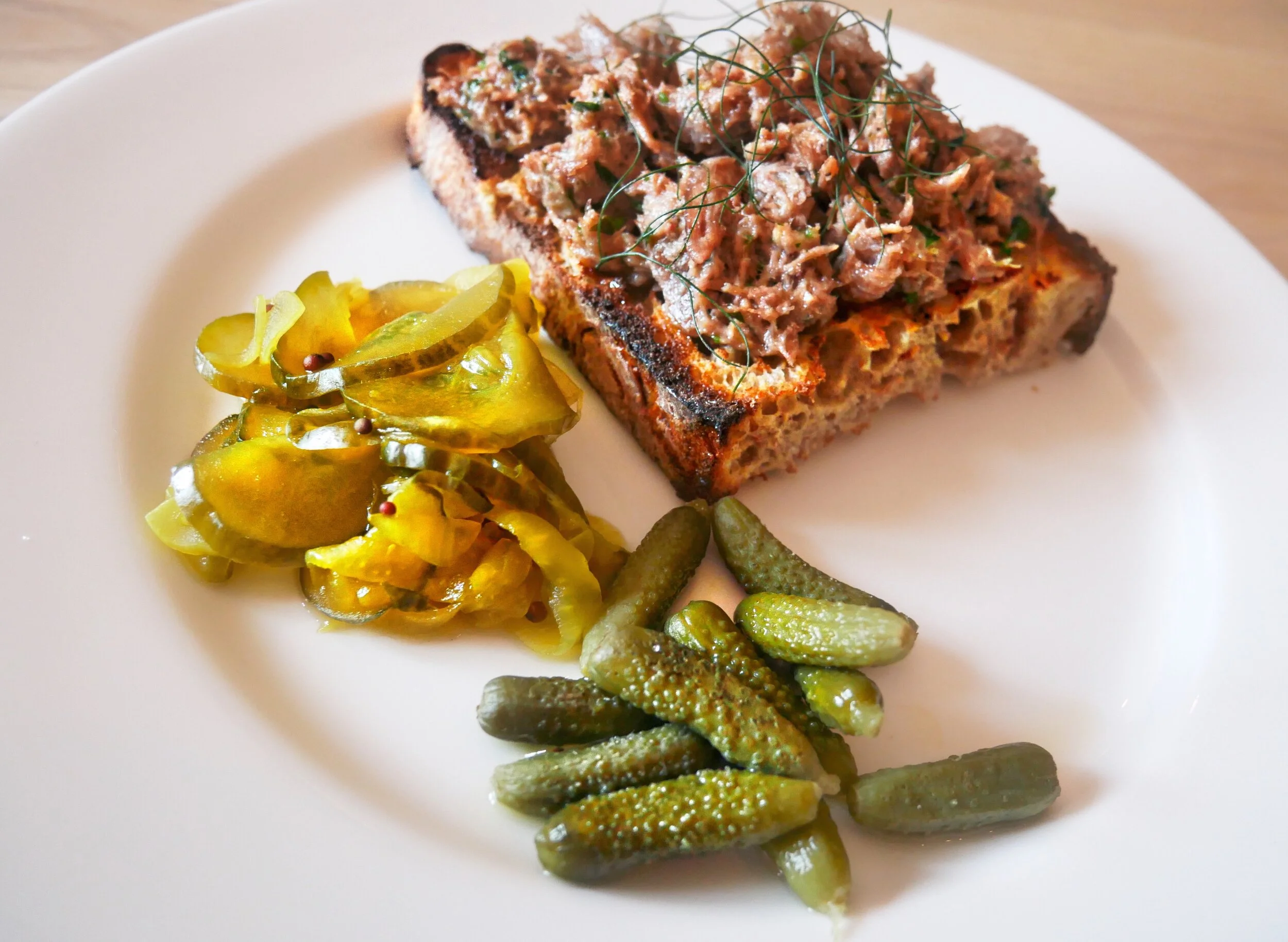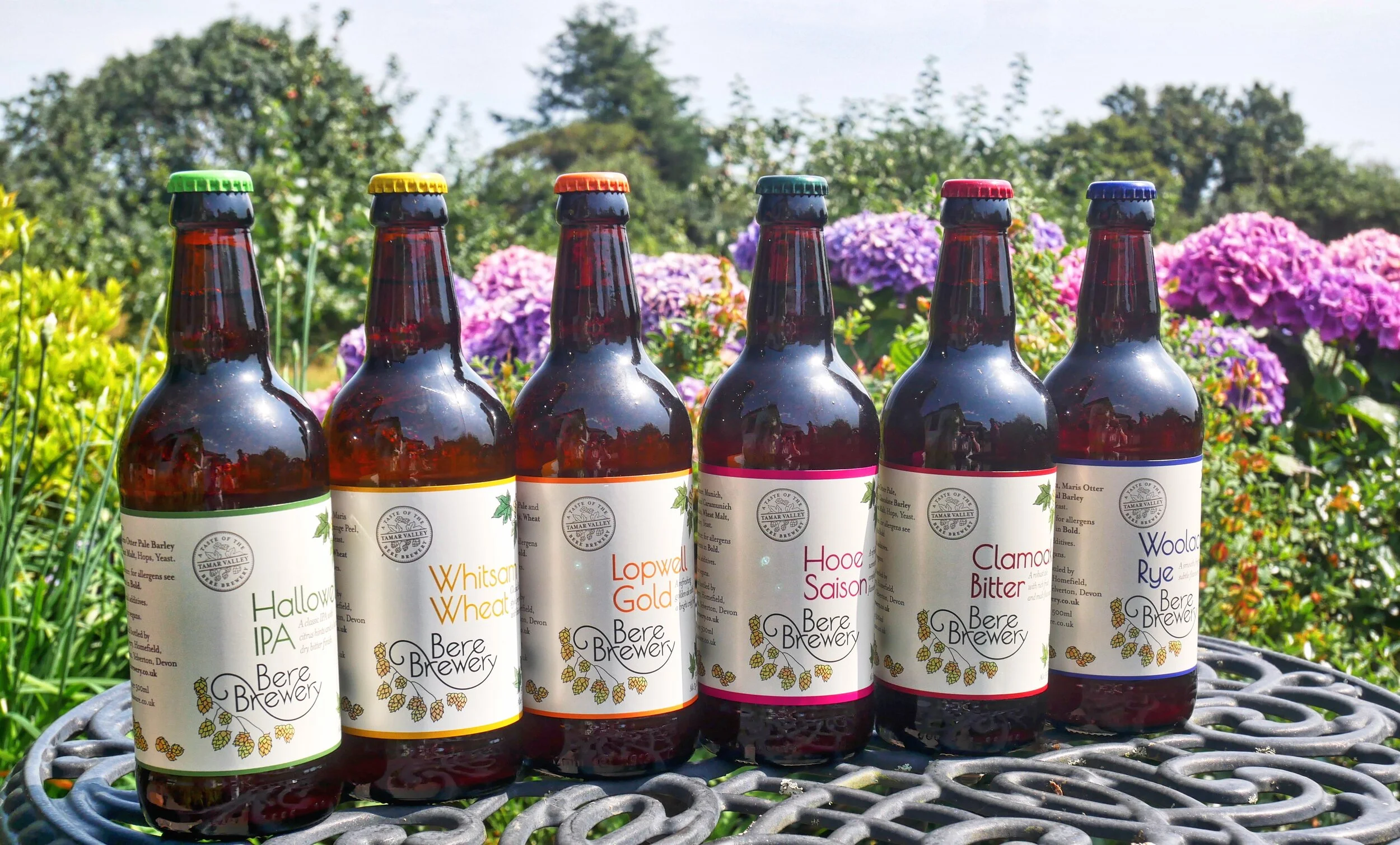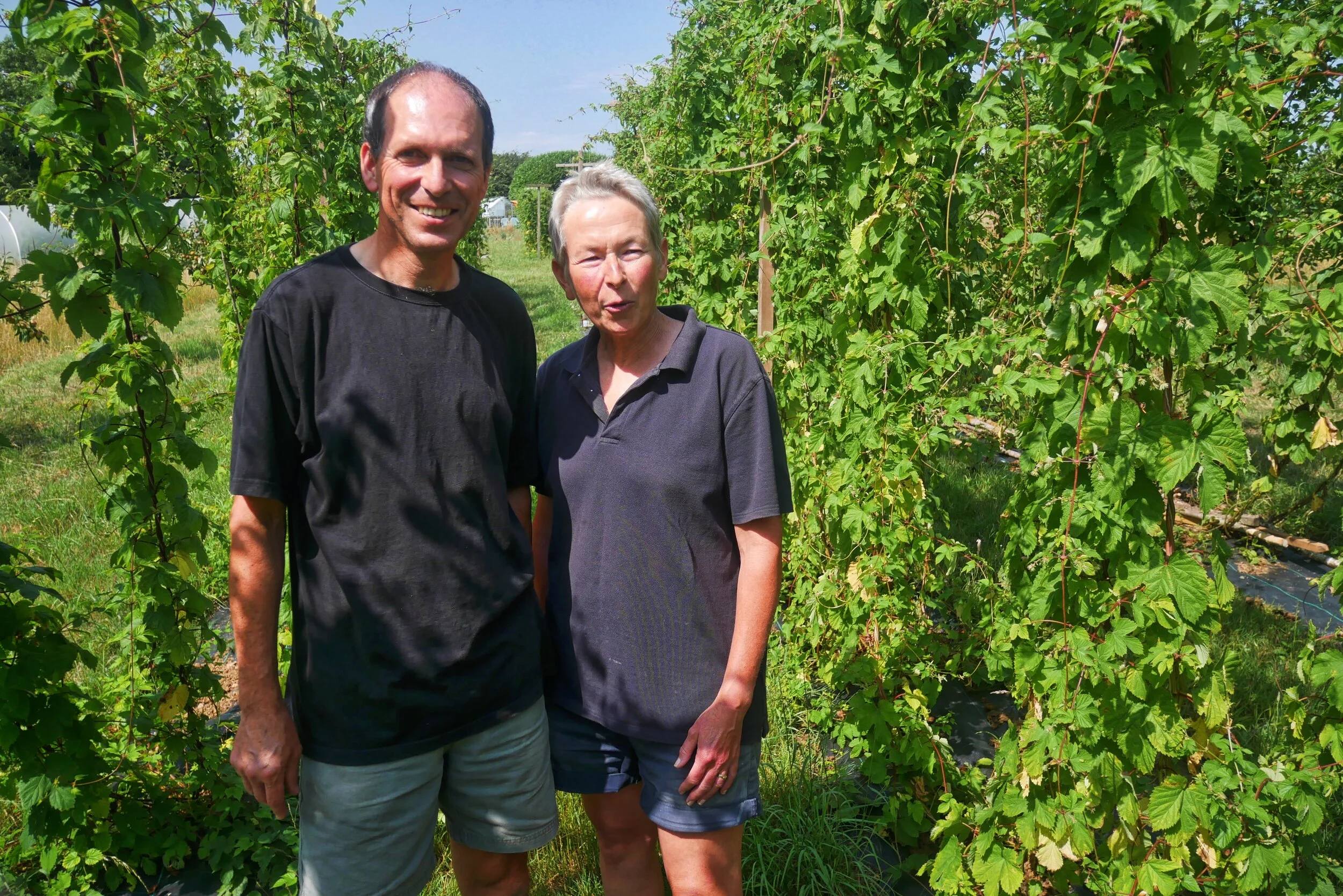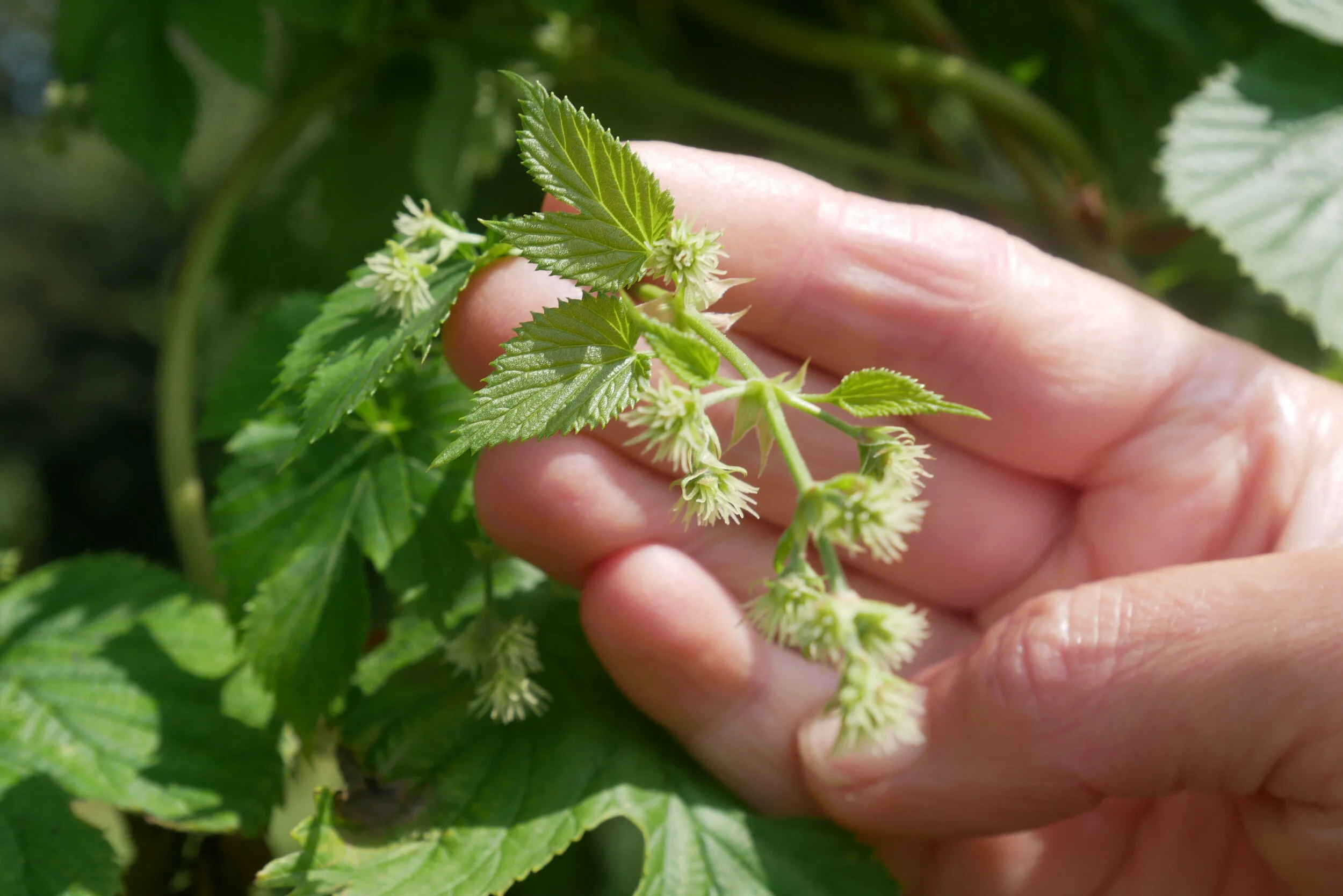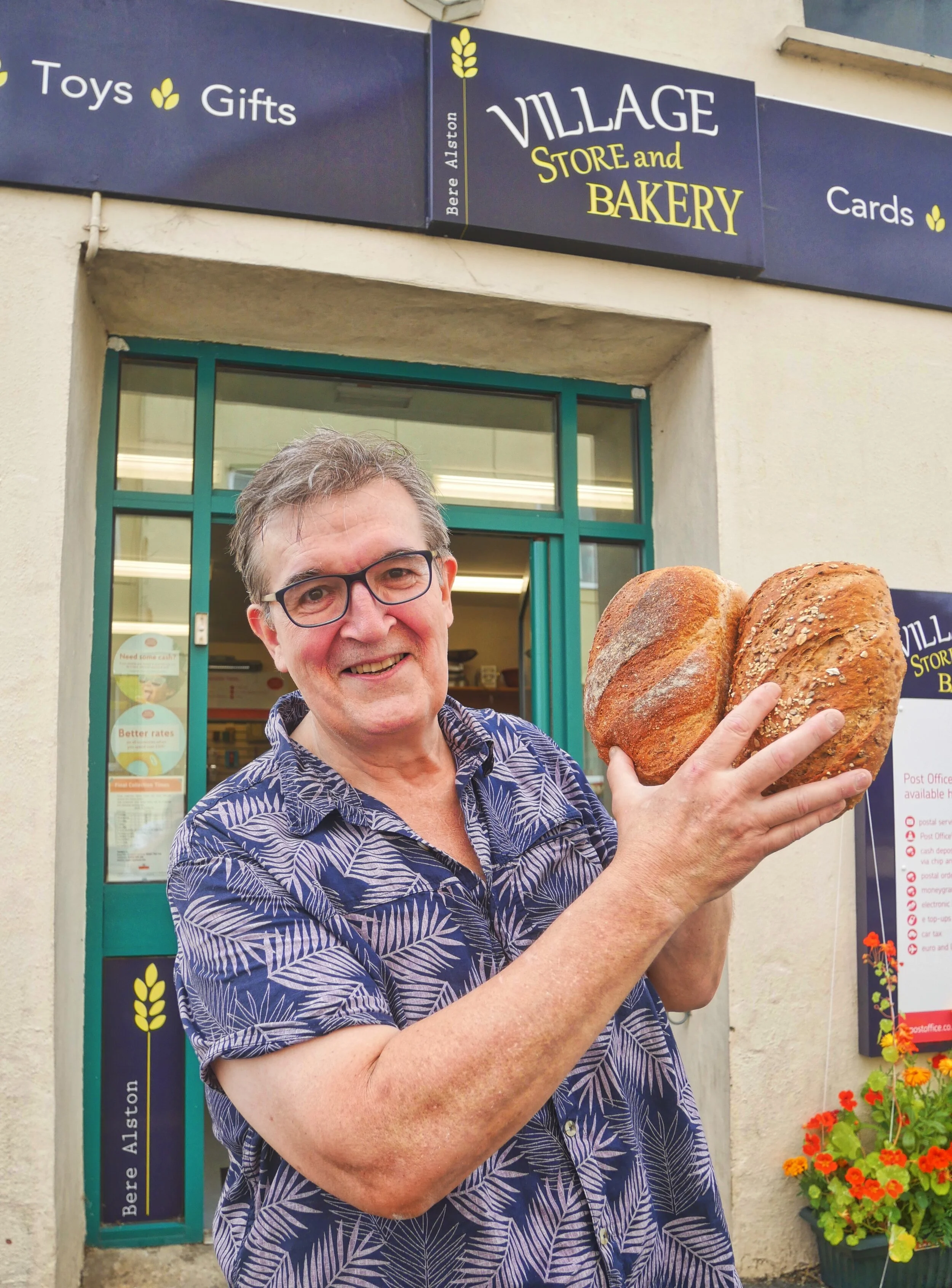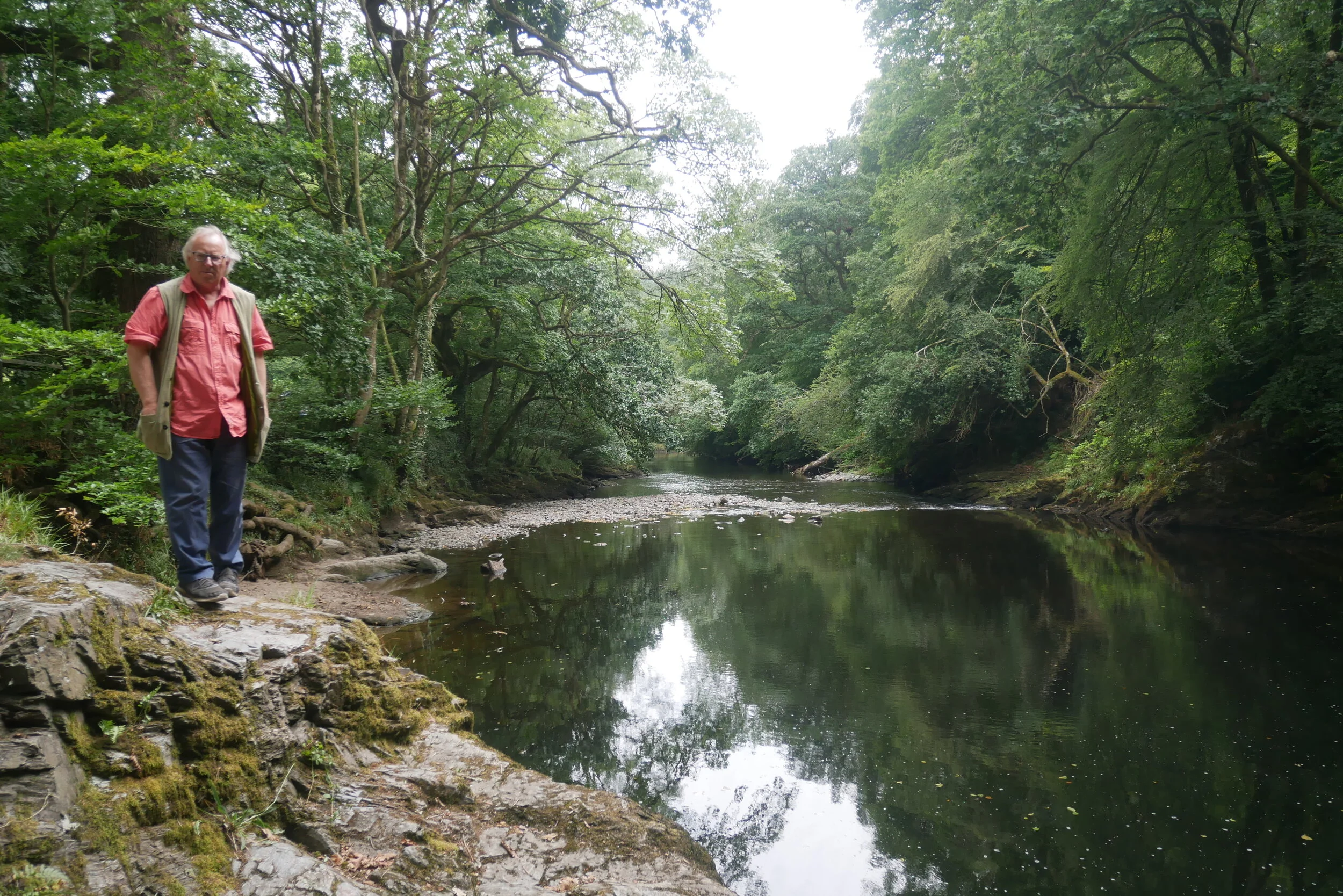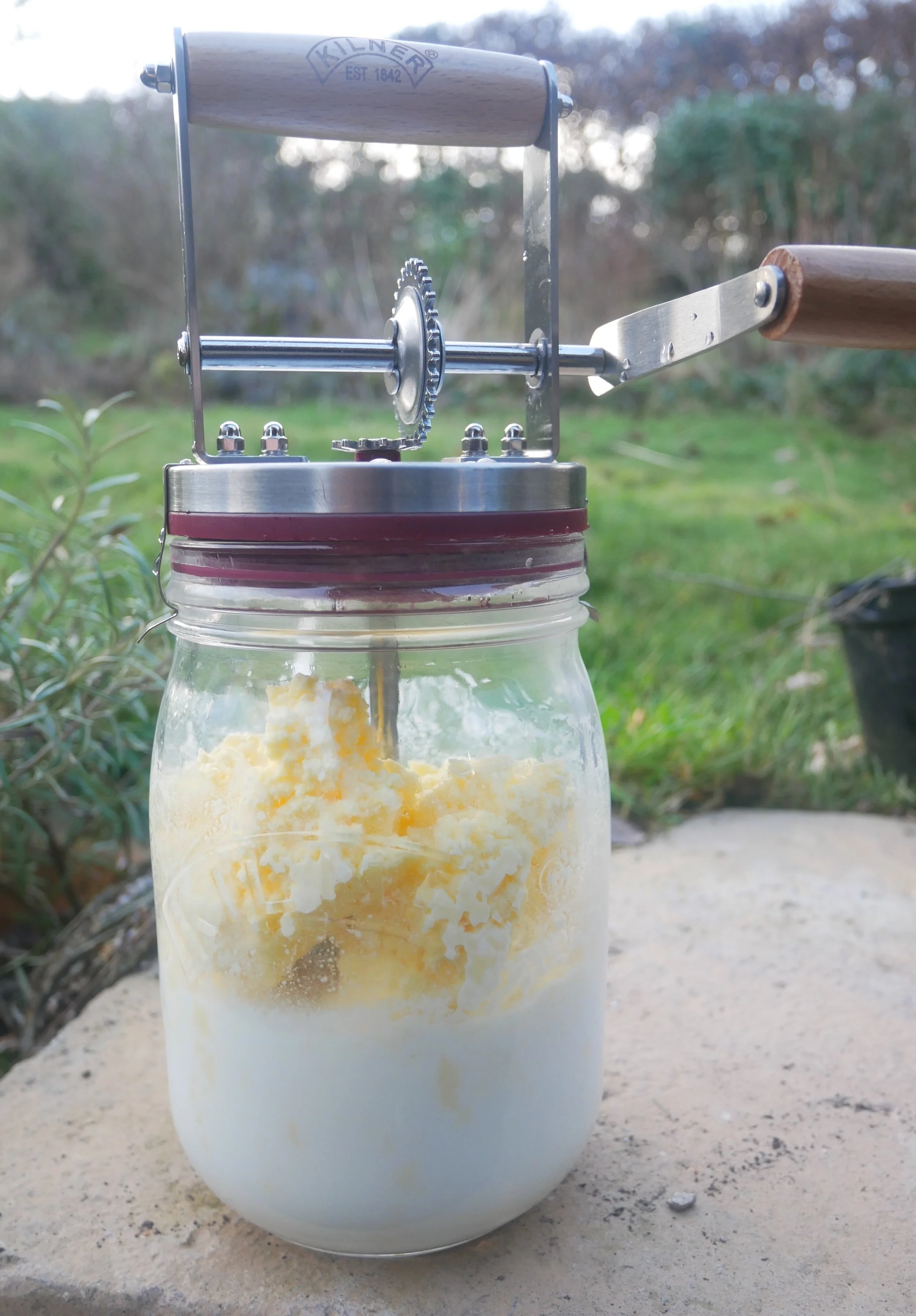A Devon Food Safari
What follows is the sort of thing I used to do for a living - a pleasant journey around an area of West Devon in the company of poet James Crowden exploring the food and drink offerings of the area. As I still write the food pages of the region’s main daily newspaper, the Western Morning News, I dearly wish I could do these excellent little research trips again - and hopefully will sooner rather than later.
And I say that both for my own selfish sake and for all of us consumers - but more particularly for the sort of people who are featured in this article who, running food/drink related businesses - must be suffering badly during the constant lockdowns…
This article appeared in the paper about two years ago….
Flood at the Leaping Salmon pub in Horrabridge
You could call them food adventures or culinary safaris. The idea is that you simply turn up in an area and explore around until you find some folk who are creating, growing, making or generally doing good things with food or drink - and you either buy some of their wares or, in my case, you write about them in a newspaper.
Which is what I did one day this week thanks to the West Country’s greatest food adventurer or culinary safari man, James Crowden.
James was the partner of the WMN’s erstwhile food editor Carol Trewin until she died at a tragically young age some years ago, and he helped her publish several foodie tomes including The Devon Food Book, the pages of which spurred him on to invite me down to a corner of West Dartmoor this week.
“I’ll arrange for you to spend a night at the excellent Leaping Salmon pub in Horrabridge and I will show you around the area and introduce you to some intriguing small food and drink businesses,” said James, who still owns Carol’s old house in the village, which is one reason why he knows the area so well.
And so I got to meet an inventive and thoughtful 29-year-old Oxford graduate who is now a country pub landlord; a pair of scientists who used to grow organic vegetables for a living but now concentrate on making delicious beer; as well as the husband of a postmistress who has turned their village post office into bakery of increasing renown; and a young woman who manages a cheese shop which next month will be staging the largest cheese festival in the South West.
Not a bad little haul for an area which not too long ago was riddled with mines and arsenic waste.
There is, by the way, an organisation which covers this area as part of its larger patch and it is called the Tamar Valley Food Hubs - an online farmer’s market which brings together the “best of local and seasonal produce in one place”.
“By shopping with us you are directly supporting independent growers, local businesses, community projects and co-operatives worldwide,” says the website which you can visit at www.tamarvalleyfoodhubs.org.uk - and I recommend it as there’s some great stuff on there.
But visiting a website is not as exciting as going on a food safari - for a start you do not get to dine and stay in a very pleasant pub, which is what the Leaping Salmon is. For a few years it was a bit of an eyesore - run down and with all manner non-hospitable ideas for its future, like the idea it should be turned into a Co-op shop.
But young Fred Andrews and his family, who’ve lived locally for years, stepped in to save it. Partly because Fred’s dad is a big name in the UK hotel world and partly because the lad himself had some interesting and novel ideas about how a modern English country pub should be run. I liked everything about the place. I approved of Fred’s ideas and was glad to hear that in less than a year it is driving to be a great success.
Fred Andrews shows James Crowden the veg garden at the Leaping Salmon
I liked the idea that above the pub on steep terraces Fred and his girlfriend have developed impressive vegetable gardens which provide the kitchen with loads of good stuff. The fresh courgettes presented in a plain and simple grilled fashioned with herbs were delicious.
Indeed, I liked the way Fred is keeping everything simple. There’s just a small menu on the blackboard, but what is there is first class and affordable. For lunch I had a duck pate on homemade sour-bread toast with pickles and it was everything such a dish should be. For dinner I went down the full-on plain food route and ordered ham, egg and chips - which again, ticked all the right boxes. A good test-bed, ham, egg and chips. Almost every pub does it, but very few do the dish to a level where you’d score it ten-out-of ten. Fred got all the points.
“The vision was to open a pub doing simple food, fresh ingredients - nothing fancy,” he told me. “There’s another pub in the village and we wanted to be quite different from that but keep a community focus. At the same time we wanted to make the food of a calibre that it would draw in people from outside the area as well.
“A year of innovations later we got it open and here we are. In an ideal world we’d grow everything so we decided to start off with all the things that benefit from being fresh - salads, herbs, greens… Tomatoes and cucumbers are on their way.
Duck rillette on toast with pickles at the Leaping Salmoon
“Quality of produce is paramount for us. If we have fresh things, the onus is on us not to mess it up. I think cooking should be about that. We’ve got great meat coming in from the edge of Dartmoor - we’ve got a lovely couple who just farm Dexters and we take half a cow off them to work though in the pub setting…”
At the beautifully appointed (plain and simple decor, but colourful and modern in a way that doesn’t jar with the old building) Leaping Salmon, they do everything the simple way, but they do it well.
The newly refurbished ensuite room was spot-on as well, by the way, and I would have enjoyed a good night’s sleep if it hadn’t been for the mother of all thunderstorms which rolled through the region on Tuesday night.
Maybe I should have downed more of the beer at Bere Brewery. James took me to this establishment at Bere Alston because the couple who run it are gaining a big name for their ales and for the fact that they use a great many of the hops they grow for themselves. Which, believe it or not, is a very unusual thing among English breweries.
Elizabeth Rikeard told me: “We we were growing organic veg for 18 years but we’d always brewed for ourselves. I gave Jeremy a hop for his birthday some years ago and it grew so well we thought we’d grow a lot more. We ended up with so many we wondered what to do with them and the answer was a brewery. And the brewing side of things has done so well it’s taken over and we’ve cut back on the veg side of things.”
Her husband Jeremy added: “Obviously having our own hops allowed me to develop my own recipes. From then going to the small scale commercial basis we already had the recipes and ideas to use. There was the thought that it does actually work and the hops to give it (the ale) something different.”
Jeremy and Elizabeth Rickeard among the hops at the Bere Brewery
“It’s only metres from where they’re grown and picked to where they are taken to dry and vacuum packed and frozen - so they are handled very carefully so they are not bruised - and I believe that carries over into the flavour as well,” said Elizabeth.
The couple make a fantastic range of bottle conditioned beers in the small brewery in their garden, and the diverse and lovely ales are becoming ever more popular.
Homegrown hops at the Bere Brewery
“We are having great fun,” Elizabeth added. “Intellectually it’s a move on from glowering veg - you could everything you need to known about growing cabbages but if the weather is against you there are no quick fixes to help you grow a better cabbage. Whereas the more we know about the beer, the better the beer can be. It’s like a chemistry experiment combined with a cookery experiment combined. A dream really…”
Just down the road we called at the Bere Alston post office which has become famous not so much for its parcel services or anything in the postal line, but for its bread and cakes.
Jonathon Hammond and his excellent bread at the Vere Post Office
Jonathon Hammond and his wife Charlotte own the village store, bakery and post office and he told me: “I worked for nearly 40 years with children with challenging behaviour and I came to a thought where I thought I’d had enough - I thought I’d start baking. Had some successes and failures. I signed myself up to a course in London to learn how to run a micro-brewery from your own home. The lady said the course wasn’t on today - it turned out the online booking company had messed things up. So this wonderful lady came all the way down to Devon and gave me the course personally for three days.
“From that I started baking bread for family and friends - then went to three days a week. Now it’s five or six days a week and we get through half a tonne of flour every three and half weeks. We bought the post office and redeveloped it and converted two rooms at the back of our home to a dry story and bakery.
“We do enjoy a good reputation now - we supply quite a few cafes in the area and Country Cheeses in Tavistock take our sourdough,” said Jonathon.
And if you’re in Country Cheeses you know you must be doing something right. Tavistock’s famous cheese store is just a few miles from Bere Alston and by coincidence we met Jonathon in the shop the next morning when he was delivering bread to manageress Becks…
She wanted to tell me about Country Cheeses’ annual festival on Saturday 10 and Sunday 11 of August. “It’s completely free and we have loads of our cheesemakers there, all with samples and telling their story - explaining why they do it - and people love it. It is very popular - we see 100s of people over the weekend.
“We get fantastic feedback with the special forms we have printed in the brochures and people come back to us with their tasting notes…”
Which all sounds very jolly to me - perhaps I might return to the area to enjoy that remarkable festival of all things dairy, and maybe even have another meal at the Leaping Salmon.
Poet and author James Crowden known the Horrabridge area well having been born nearby




